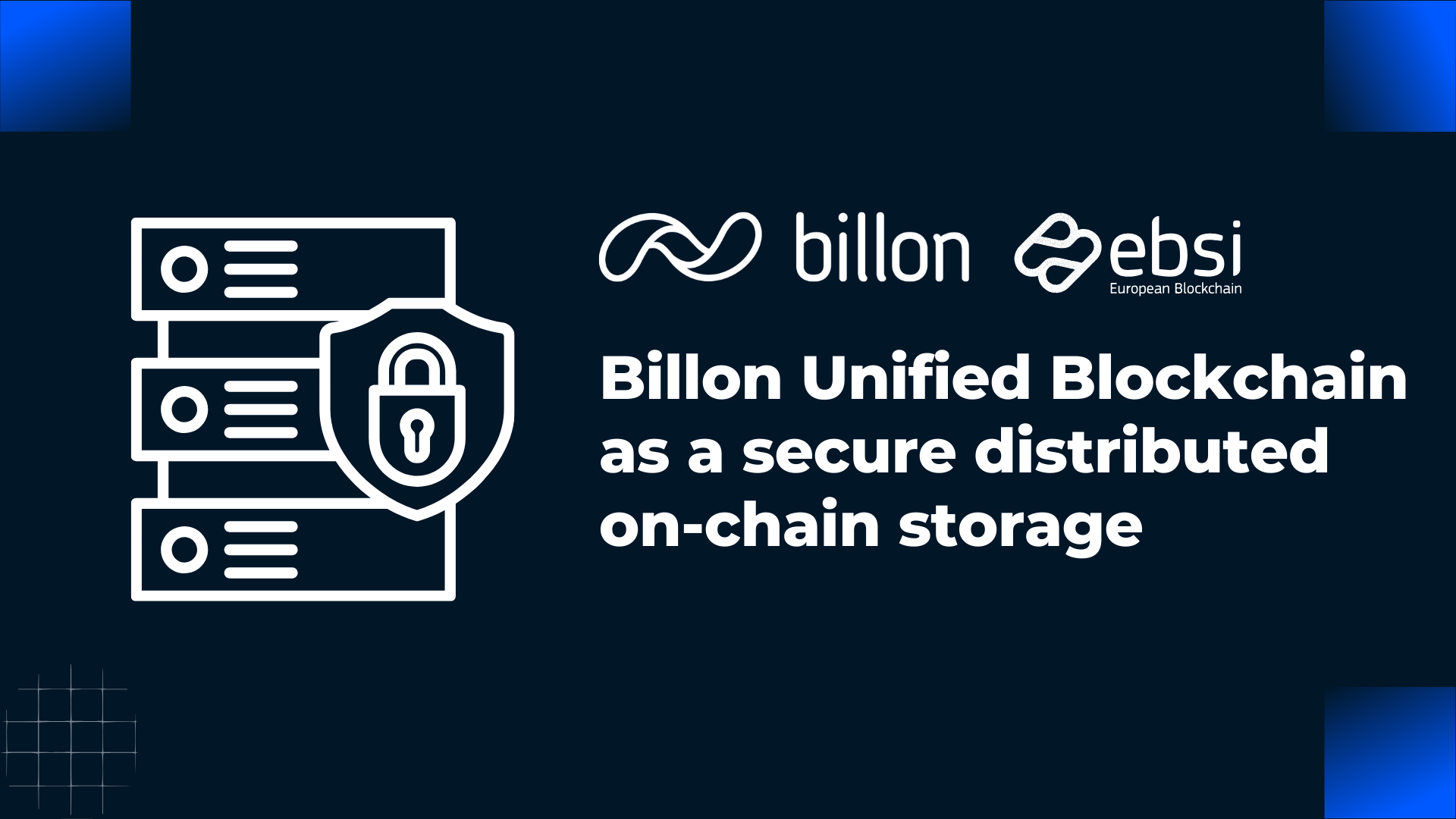Back to Blog

Billon Unified Blockchain as a secure distributed on-chain storage
Jan 17, 2024
5 min read
One of the fundamental characteristics of blockchain is the immutability of the data embedded within its chain structure. Information is organized into consecutive blocks, with each new block incorporating the checksum of its predecessor. This design ensures that altering or deleting data is practically impossible without compromising the entire structure.
Furthermore, these blocks are processed in a distributed manner across nodes, which serve as the foundational elements of the blockchain network. Each new data entry undergoes a consensus-building process among the nodes, enhancing data security. This is particularly noteworthy since the nodes operate independently, each managed by distinct entities, reinforcing the integrity of the entire system.
However, there are notable drawbacks to consider. In the initial blockchain networks, a significant limitation existed regarding the amount of data that could be incorporated. For instance, in the BTC network, the size of a single block is constrained to 1 MB, while in Ethereum, the maximum size is 12 MB. Additionally, the requirement for complete data synchronization across all nodes adversely affects the scalability of the solution. These constraints often result in many solutions utilizing blockchain for document and data security limiting their functionality to services resembling stamping or notary functions.
The Billon Unified Blockchain has been purposefully crafted to surmount these challenges. Key architectural decisions, such as restricted data replication among nodes and a streamlined consensus mechanism, enable the direct integration of all documents and data into the blockchain structures. This design ensures that the system maintains scalability and efficiency without compromising on its core functionalities. In the recent tests conducted as part of the European Commission driven EBSI PCP Project in a medium-sized environment, the Billon Unified Blockchain demonstrated an impressive capacity, allowing for the writing of 1.5 GB of data per second. This capability surpasses the requirements for enterprise usage, establishing the platform as highly efficient and well-suited for handling substantial data volumes, with minimum energy consumption.
Based on the such capability, Billon Unified Blockchain is able to work as a distributed on chain storage offering:
Immutability: Once data is written (published) on the blockchain, it cannot be deleted or changed. However, versioning is possible, enabling the tracking of the new version changes over time.
Privacy: Data on the blockchain can be categorized as either public, accessible to anyone with network access, or private, protected by cryptographic algorithms and restricted to authorized users.
Authenticity: The platform incorporates a built-in sovereign identity solution and operates under a permissioned governance structure. This ensures the identification of the originator of a given data portion or document.
Auto Backupping: Data is processed in a redundant distributed environment, providing an automatic backup mechanism for enhanced reliability and data resilience.
Security: The distributed nature of the system eliminates the vulnerability of a "single point of failure" safeguarding against attacks that could compromise processed documents and data.
Compliance: The system adheres to European GDPR regulations, boasting a patent-pending implementation of the right to be forgotten. This ensures that the platform aligns with privacy and data protection standards, offering users control over their personal information in accordance with regulatory requirements.
Billon Unified Blockchain emerges as a highly reliable on-chain storage solution for valuable documents and data. Its innovative design, combining immutability, privacy, authenticity, and auto-backupping, addresses fundamental challenges faced by traditional blockchain systems. With a focus on security, the distributed architecture mitigates the risk of single points of failure, providing a resilient foundation for storing sensitive information.
The distributed architecture not only fortifies security but also diminishes environmental impact by mitigating the reliance on energy-intensive centralized servers. In terms of energy efficiency, the Billon Unified Blockchain stands out, surpassing other blockchain networks. This makes it the optimal choice for cost-effective and sustainable services as distributed secure on-chain storage.
